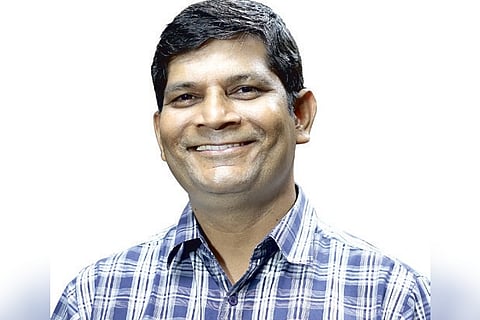

Chennai
In October, Ultraviolette Automotive, a start-up in the electric vehicle space, which was backed by GoFrugal raised an undisclosed sum in a Series B funding exercise. In an interaction with DTNext, Vembu, who has a knack for diversified investments, tells us, “Towards the end of 2004, we had studied retail consumption patterns, sales operations and customer variations across regions and formats in India. The need for a high degree of automation was the one thread uniting our client base.”
Vembu, who was previously part of SaaS enterprise Zoho’s core team, established GoFrugal, is clear about his target customers small and tiny businesses (read your neighbourhood kirana store), known to be “underserved and even unserved” typically.
Though IT was in demand, everyone was chasing only the big and medium enterprises, he tells us. “Traditional retailers are aware of consumer preferences and we equip them with right technologies that would boost their business, especially when computing had become a commodity,” he says. Recently, the company offered small retailers complimentary options to build their own in-house store app as well as ways to connect with delivery agents to bridge the last mile connectivity.
Realising the goldmine thrown open by the entry of FDI, in retail, trading or modernising supply chain functions, GoFrugal was quick to seize the opportunities. The implementation of VAT in 2005-06, across the country, was an opportunity as it brought in efficiencies. The input tax credit process meant maintaining books of accounts and inventory. That said, the tech adoption was accelerated by drivers such as GST, DeMon, UPI, Bharat QR, and payment gateways. “The vendors/suppliers had to reconcile with the changing landscape of doing business. The mechanism of cross-checking has aided the adoption of technology. Every two to three years, there have been drivers in this direction. Omni-channel is a reality today and cheaper smartphones have come to stay,” he says.
This modernisation has contributed to scaling up of GoFrugal, which has not only been acquiring customers but withstanding competition through investment on the customer’s future and product. “We began our digital transformation journey six years ago and that meant digitally operationalising at our end. The mobile app became the route to access any of our services. In May 2017, we went fully digital with 25,000 customers onboard. While the GST updates were coming in multiple instalments, we switched from phone support to chat-based support from June,” Vembu says, adding there was no “talking to” customers anymore.
GST, he says, was the turning point, as it made GoFrugal the “only company to service customers and small shop owners” via chat. In a country like India which thrives on “voice” support, GoFrugal decided to price this service for Rs 1,000 per hour in Oct-Nov 2019, after going fully “chat” mode.
GoFrugal gets 25 per cent of its business from TN, of which 40 per cent comes from Chennai. “We have a customer in every town,” Vembu claims, adding that serviced locations include Navsari and Surat to states like Meghalaya, Nagaland, J&K and Assam.
In 2006, GoFrugal’s introduction of the AMC may have raised eyebrows among competitors but persisting with the model has paid off, he says. The firm has spread its wings across 75 countries and targeting a $100 mn growth by 2025, it hopes to formally launch in the West in about a year and a half.
Visit news.dtnext.in to explore our interactive epaper!
Download the DT Next app for more exciting features!
Click here for iOS
Click here for Android